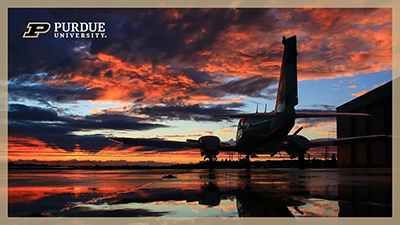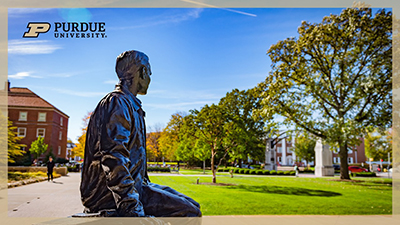With stay at home orders in place and the movement to online learning, FNR faculty, staff and students have had to adjust to ever changing conditions.
"Our faculty, staff, and students have done an excellent job adapting to these very difficult times," FNR department head Bob Wagner said. "A special thanks go to all of our course instructors who gave up their spring break to quickly move their courses online. That conversion has gone off reasonably well and the internet thankfully did not crash."
"I also am happy to report that our critical research functions in the lab and field have been able to go on largely intact. Our Extension staff had to cancel a number of planned events, but they found ways to move some of their programs online. Much of the other normal work of the department has continued through teleworking by all faculty and staff. So, kudos to everyone for being so adaptable so quickly.”
Despite the challenges, our department is still thriving: research is still happening, extension educators are spreading the word, and most importantly our students are still learning.
Here’s a look at some of the ways FNR faculty, staff and students are staying connected and have modified teaching styles to continue to provide cutting-edge educational opportunities.
Maintaining Contact
In addition to constant email updates from University President Mitch Daniels, senior staff and College of Agriculture Dean Plaut, FNR instituted weekly or bi-weekly virtual meetings for faculty, staff, undergraduate students and graduate students to discuss COVID-19 related questions, classes, teaching methods, and simply for status check-ins.
Dr. Linda Prokopy instituted a virtual coffee break to check in with building colleagues working from home.
In town hall style meetings, graduate students gathered to discuss their work, struggles with virtual learning and research. Staff members discussed adjustments, technology issues and more. Faculty members talked about funding issues, on-going research, teaching methods and more. These town halls have continued weekly or bi-weekly to keep all faculty, staff and students abreast of changes in policy as well as keeping the FNR family connected.
Learning Must Go On(line)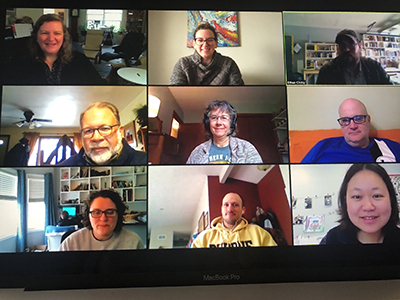

When Purdue announced it was transitioning to online learning beginning after spring break, FNR faculty and staff began moving classes to virtual formats. This involved heading to empty classrooms in some cases to record lectures, utilizing virtual meeting software to record short instructional videos, creating ways to present tests and quizzes online and even developing creative ways to present field work.
Faculty and staff sprung into action to help one another in the process, hosting tutorial how-to gatherings and brainstorming sessions on best practices. The University also provided resources for both faculty/staff and students on how to best manage the transition to e-learning.
Extension wildlife specialist Jarred Brooke is teaching a fire ecology class (FNR 333) on the history, science and practice of prescribed fire. Brooke turned to crowd-sourcing on twitter to gather prescribed fire videos to show his students the ins-and-outs of the technique since he could not take them in the field to experience it in person. His innovations are featured in this story: When Best Laid Plans Go Up In Smoke.
Dr. Pat Zollner, professor of wildlife science, faced the challenge of replacing several lab/field based items in his FNR 567 Advanced Mammalogy class. Instead of a field trip to the Indianapolis Zoo from which students would develop ethograms, Zollner’s students were supplied with web cam feeds from zoos or natural areas around the world that would provide the basis for the ethograms. Zollner has also tried to maintain the interactive nature of his class through student-led discussions online via the blackboard application, in lieu of student-led, discussion-based classroom sessions that often featured games and puzzles adapted to class content. He admits the transition is a daily work in progress to continue to modify based on student needs and constant feedback.
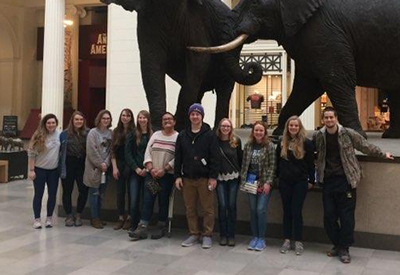
Outreach Must Continue
Extension professionals in the department were faced with another obstacle. Their work is typically out in the field, teaching citizens about various forestry and natural resource topics. Many had to cancel scheduled in-person workshops and conferences, but there was still a need to get information out there.
Sustaining hardwood extension specialist Lenny Farlee along with colleagues Don Carlson, Dave Osborne and Ron Rathfon were in the midst of an eight-session program that typically includes field tour titled “Forest Management for the Private Woodland Land Owner.
Farlee was just two sessions into this program when the word came down that all face-to-face extension programming would be canceled/postponed. Based on feedback from our participants, he is now offering pre-recorded versions of the presentations and encouraging those in the class to submit questions by email that are flagged as private or to be shared with other participants. The participants also received a flash drive with the presentations, extension publications and resources covering the program topics to use for additional details and enrichment.
Farlee also plans to offer this course again this late summer or fall, to accommodate those with limited or no internet and so participants can have the benefits of in-person instruction and field tours.
Extension publications will continue to roll out online to support education. The GotNature? Blog also is updated periodically.
The FNR extension personnel also have begun planning and conducting several interactive online sessions, via zoom or through Facebook live, which will be unveiled in the coming weeks.
Research Moves Forward
Labs have been ordered to only continue critical research, meaning those where the care of living creatures is required or where key research data will be lost if the work does not continue. Many labs are meeting virtually to continue processing data, etc.
The Purdue Center for Global Soundscapes is participating in a global COVID-19 related study.
Virtual Graduate Student Presentations
Jon Knott was the first FNR student to present his PhD dissertation defense virtually, speaking on "Species to Community Level Responses to Climate Change in Eastern U.S. Forests” on March 31
Maggie Wigren followed suit, sharing her master’s thesis defense on the “Sub-chronic Effects of Polycyclic Aromatic Hydrocarbons on the Sheepshead Minnow (Cyprinodon Variegatus) Gut-Microbiome and Foraging Behavior.”
Logan Billet presented his master’s thesis on “Exploring the Separate and Interactive Effects of Pesticides and Parasites on Amphibian Populations” on April 14.
Scott Koenigbauer joined the group with a successful master’s thesis defense on “Maternal Effects and Egg Size Variation in Fishes: General Patterns and the Influence of System Size,” on April 17.
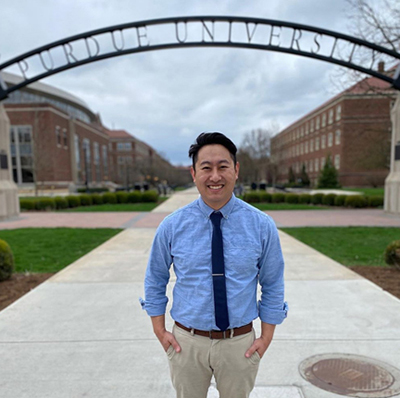
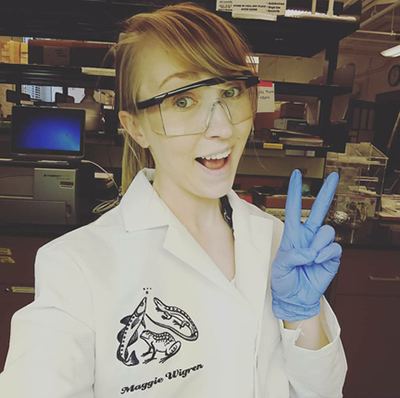
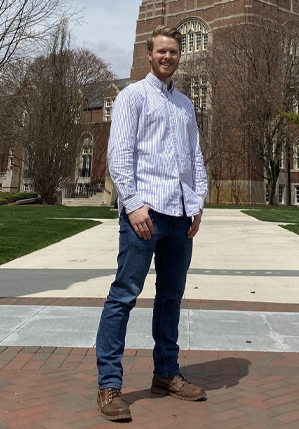
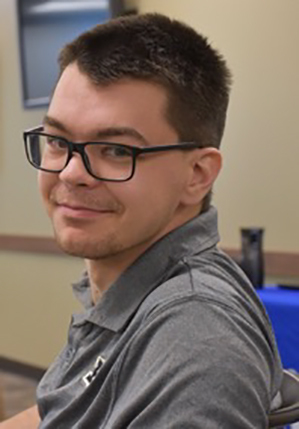
Resources
As the country adjusts to virtual meetings, etc., Purdue unveiled zoom backgrounds that will allow users to show off their Purdue and campus pride. Backgrounds are available on Facebook, Twitter and Instagram.
